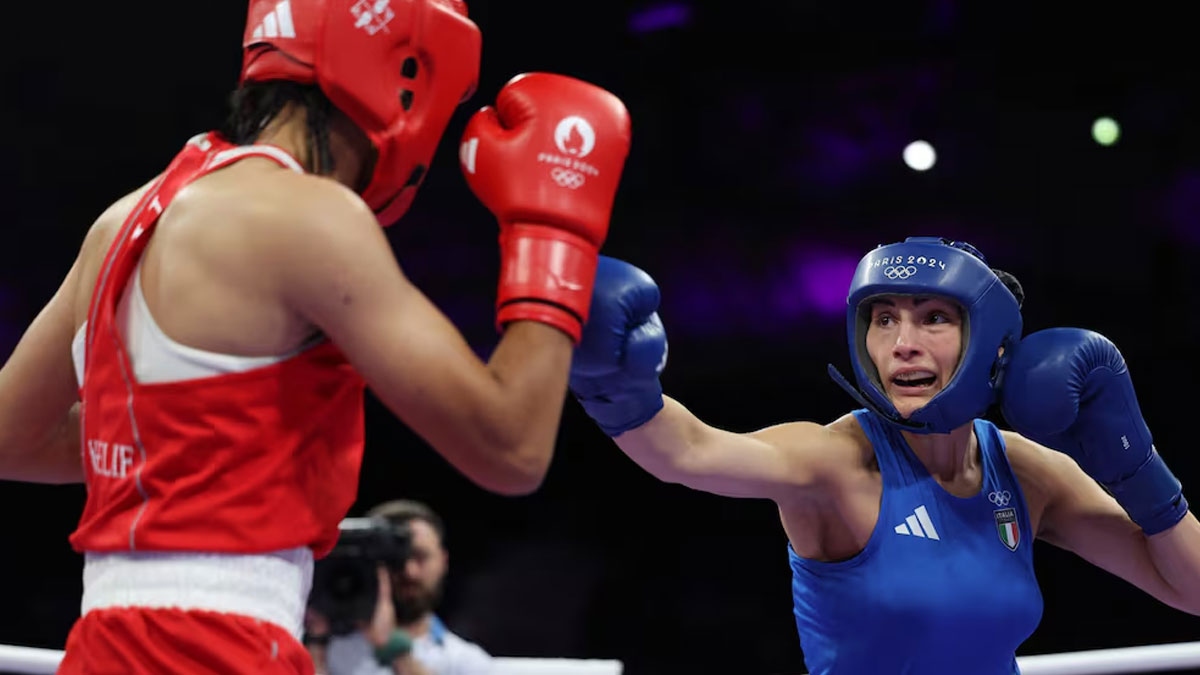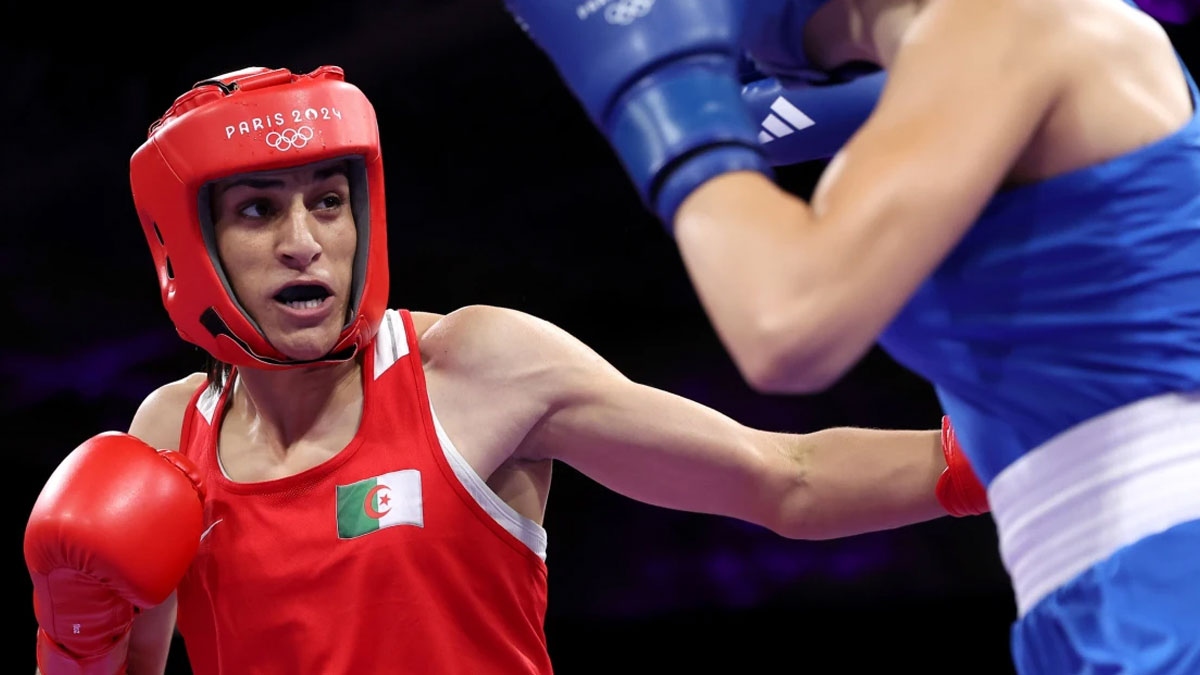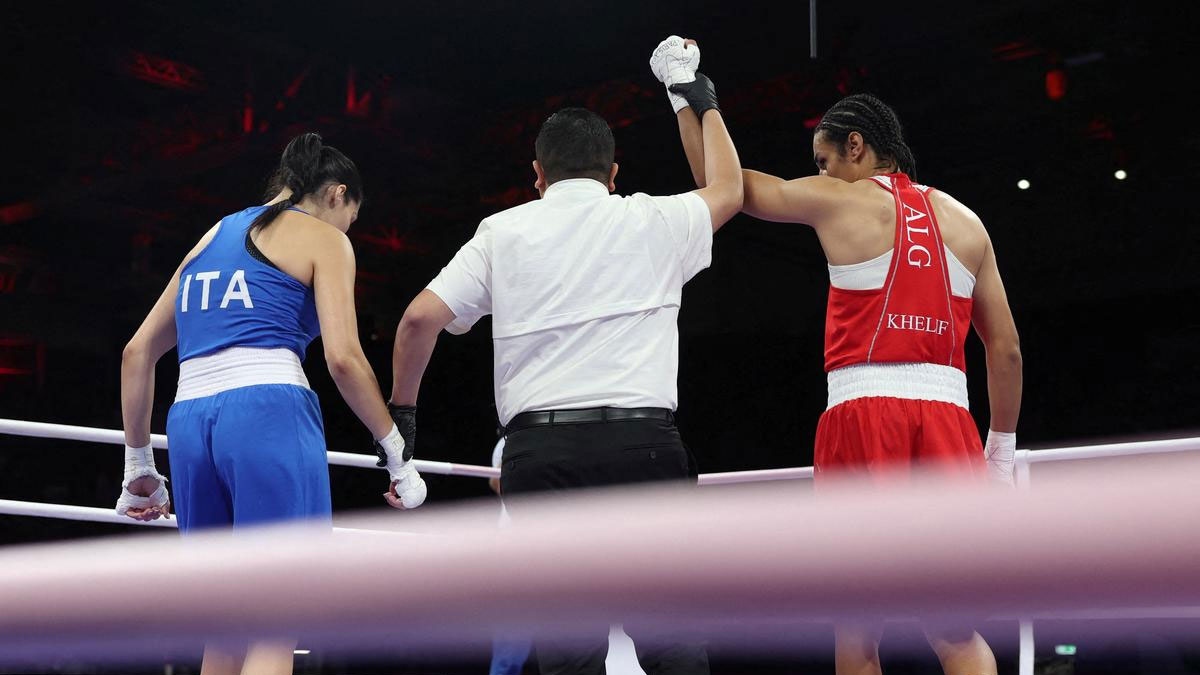
At the Paris Olympics, Algerian boxer Imane Khelif stunned her Italian opponent Angela Carini in just 46 seconds. Khelif had earlier failed a test to see if she was allowed to compete because of her gender. The quick and clear triumph has sparked discussions on women's sports eligibility once more.
Khelif's strong punches left Carini with a bloody nose, therefore stopping the contest. Clearly upset, Carini turned down Khelif's handshake and fell in tears on the ring. Italian Prime Minister Giorgia Meloni called the game "not on an equal footing."
Clearly distraught, Carini told reporters, "I said, 'Stop,' since I have a great pain in my nose. From the first strike, my nose began to run blood. She also expressed her dismay, pointing out that the suffering throughout this game overpowered her even with her great expertise against males.

Khelif's progress to the quarter-finals in the women's 66kg category has attracted notice to her and Taiwan's Lin Yu-ting, who both risked disqualification last year for elevated testosterone levels but are now qualified to compete in Paris. All athletes in the women's category satisfy the eligibility criteria, according to the International Olympic Committee (IOC).
Notwithstanding the scandal, Khelif got great support from Algerian supporters and her Olympic Committee, who called the complaints "malicious and unethical." Taiwan President Lai Ching-te also defended Lin, noting her motivating performance.

Competitive in a different weight class, Australia's Caitlin Parker expressed her worries, saying, "I don't agree with that being allowed, especially in combat sports as it can be incredibly dangerous." Strong arguments on both sides of the controversial question of gender eligibility in sports even though there is real physical danger involved for biological women.



















